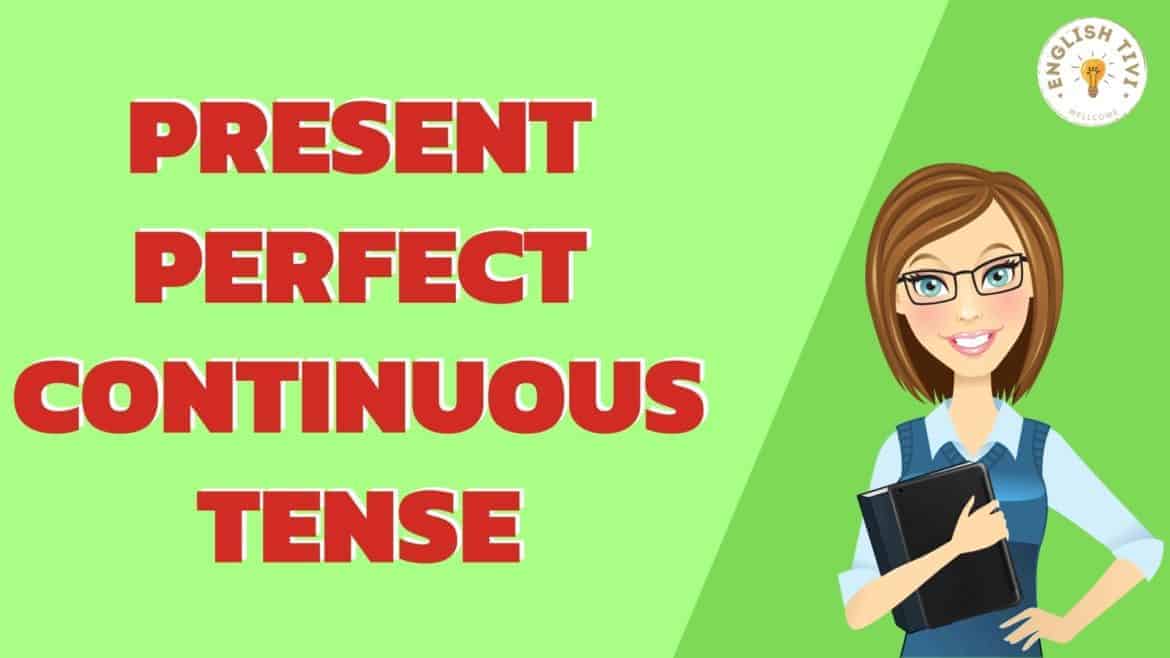Introduction
The present perfect continuous (also called the present perfect progressive) is a verb form that we use to describe an action that started in the past and either recently finished or is still continuing.
⏩ Sign Up to Get Bonus
The present perfect continuous usually emphasizes duration or the amount of time that an action has been taking place.
You might also like: ALL the English Grammar Basics You Need
Structure of Present Perfect Continous Tense

POSITIVE FORMS (+) :
- Subject ( I, You, We, They ) + have been + Verb-ing
- Subject ( He, She, It ) + has been + Verb-ing
Examples:
- I have been studying for three hours.
- I’ve been gardening for three hours. My back is killing me!
- We have been helping her out for a few months.
- I have been watching TV since 7pm.
- He has been playing football for a long time.
- He has been living in Bangkok since he left school
NEGATIVE FORMS (-) :
- Subject ( I, You, We, They ) + have not been + Verb-ing
- Subject ( He, She, It ) + has not been + Verb-ing
Examples:
- I have not been watching the cricket match for an hour.
- Ricky hasn't been visiting us since March.
- My mom hasn't been feeling well for two weeks.
- I haven't been watching TV for 3 years
- We have not been smoking
QUESTION FORMS (?) :
- Have + Subject ( I, You, We, They ) + Verb-ing
- Has + Subject (He, She, It) + Verb-ing
Examples:
- Have you been preparing the assignment for two hours?
- Have you been listening to realistic songs since morning?
- Has Jerry been picking fruit from my trees again?
- Have you been keeping track of sales?
Wh Questions:
- Why has the phone been ringing for the last two hours?
- What have you been doing since I left?
- How long has he been waiting?
- What have you been reading?
| POSITIVE (+) | NEGATIVE (-) | QUESTION (?) |
| I have been living | I haven't been living | Have I been living? |
| You have been living | You haven't been living | Have you been living? |
| He, she, it has been living | He hasn't been living | Has she been living? |
| We have been living | We haven't been living | Have we been living? |
| You have been living | You haven't been living | Have you been living? |
| They have been living | They haven't been living | Have they been living? |
You might also like: Past Simple Tense
Present Perfect Continous Tense Uses
1. We use Present Perfect Continous
We use the Present Perfect Continuous tense to talk about an action that started in the past and continues in the present.
Examples:
- Simon hasn’t been attending class regularly since he got a job.
- I haven’t been feeling well lately.
- I have been living in this house for 5 months
- He has been running since 5:30.
- I have been climbing up this mountain for over two hours.
2. We use Present Perfect Continuous for past action continuing now
We use the Present Perfect Continuous tense to talk about an action that started in the past and is continuing now. This use of the tense focuses on the action and the effect it creates. This is often used with for or since.
Examples:
- Tom has been repairing my car. He’s got oil on his hands.
- The kids have been playing in the garden all afternoon and they're covered in mud
- He has been running since 5:30. Now he's tired
- Your eyes are red. Have you been crying?
- The ground is wet because it's been raining.
Recognition of Present Perfect Continuous Tense
The sentence contains adverbs indicating frequency such as:
- Since
- For
- Lately, recently
- Just
Verbs without continuous forms
With verbs not normally used in the continuous form, use the simple present perfect instead (verbs such as know, hate, hear, understand, want).
I've wanted to visit China for years.
She's known Robert since she was a child.
I've hated that music since I first heard it.
I've heard a lot about you recently.
We've understood everything.
Read more: English Grammar
Conclusion
Here is a summary of the present perfect continuous tense. English tivi hopes to guide you to read the most useful information. I wish you all good study!
Subscribe to the English TV channel on youtube to improve your English skills!





